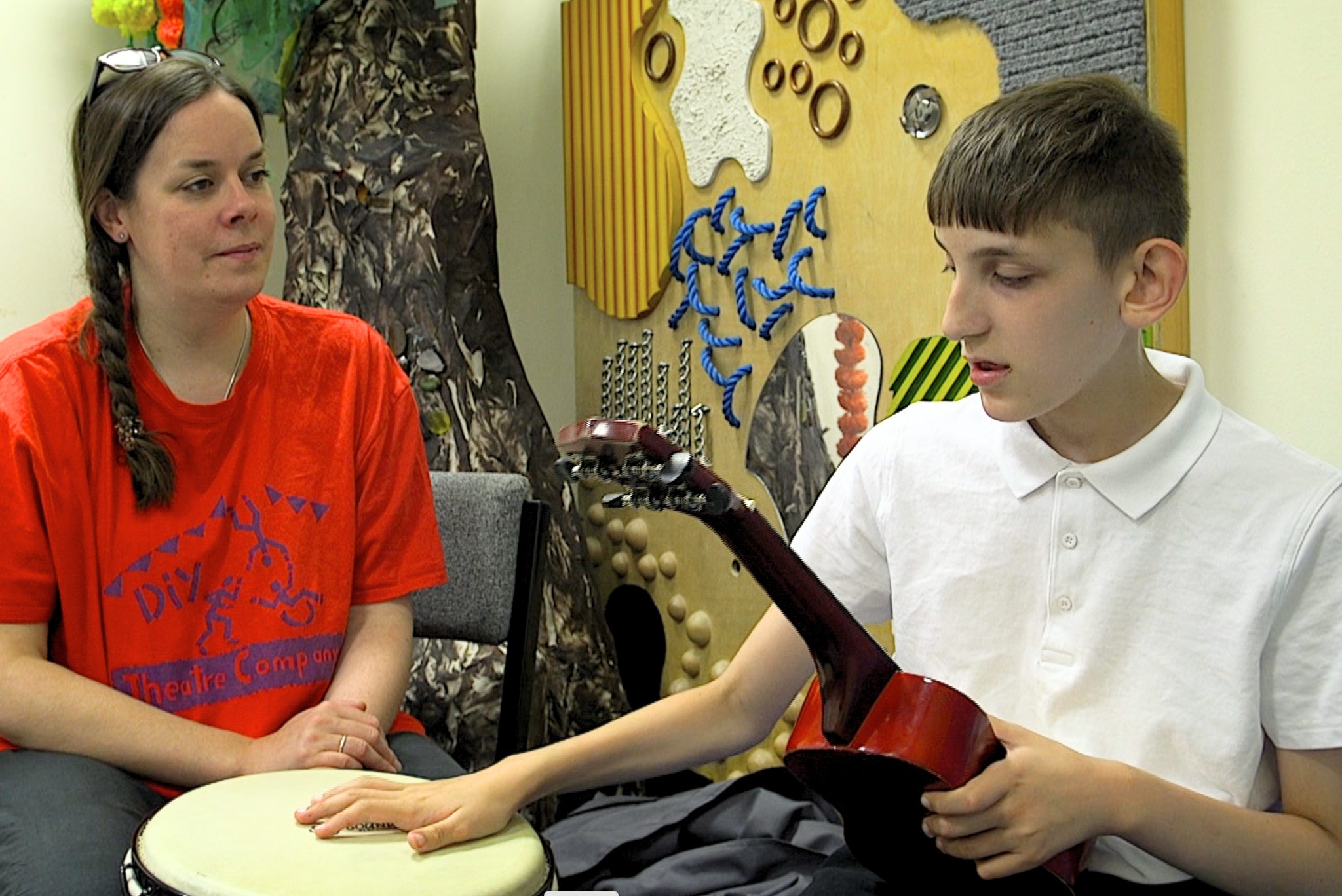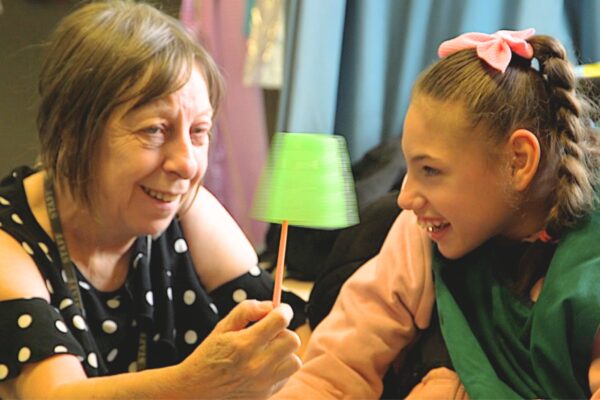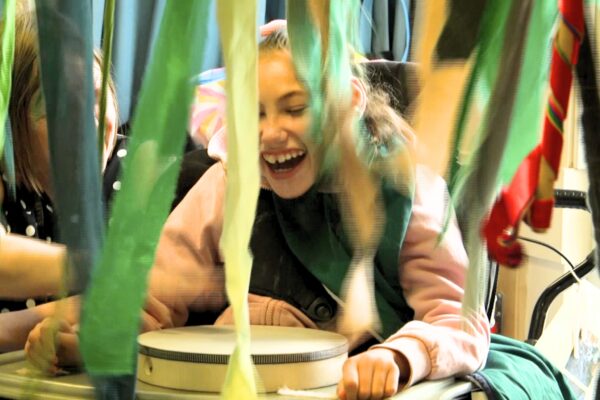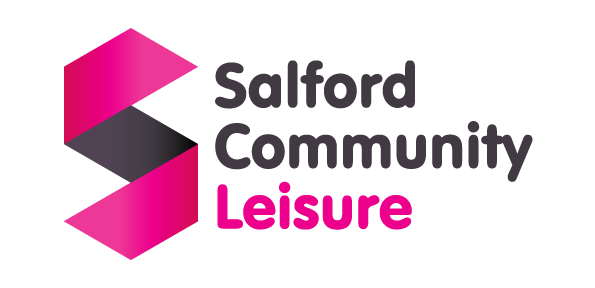Playing Together

Developing inclusive music at Chatsworth High School.
During the Summer term 2025, DIY was delighted to be commissioned by Salford Cultural Education Partnership (CEP) to work alongside learners and staff at Chatsworth High School and Salford’s Music and Performing Arts Service (MAPAS) to explore the ways in which music can support cross-curricular learning.
DIY’s brief was to model and develop a framework for using creativity to enhance cross-curricular teaching and learning. We were asked to develop a Continuing Professional Development (CPD) offer to school staff and to create a film that would outline the approaches used to be shared with other educational settings.
The music lead for the project was inclusive music specialist and DIY Associate artist, Sarah Atter. Thursday mornings became DIY’s regular weekly slot. We were really welcomed into the school and throughout the term worked with some amazing learners. From the outset, school representatives were very positive about the relevance and potential of the project.
“It’s really important to us to work with external colleagues who are really skilled, and this is a great way to develop our curriculum and meet the needs of our learners better.” – Richard Wilkinson, Deputy Head
Playing Together in the Classroom
Ten inclusive music sessions with sensory learners took place in their classroom. This was on the theme of “going on a picnic” and took the form of a journey using sensory props and objects. Sessions involved lots of repetition and turn-taking, with new elements of the journey being introduced as the project progressed. 10 learners achieved their Discover Arts Award through the project. Students learned about different art forms through engaging in music activities and story-telling using a range of sensory props and puppets. They found out about artists through working with DIY. They shared their experiences with others at a special assembly at the end of the project.
Ten inclusive music lessons took place with a group of learners with Autism (ASC). The first two sessions were held within the classroom setting where Sarah worked with learners as a whole group. In consultation with the class teacher, we agreed that one-to-one sessions would be more beneficial to learners, so the following eight sessions took the form of a series of one-to-ones in a separate space. Five of the learners in this group will be entered for the Trinity Music Development Award which is based on the ‘Sounds of Intent’ Framework and focusses on evidencing how learners demonstrate their music skills in three domains – reactive, proactive and interactive.
Feedback from school staff highlighted the positive impacts of DIY’s inclusive music project on learners. Key areas identified were independent communication and making choices.
“One of our big aims is communication and independent communication so music is a really good strong tool that promotes that independent communication from the vast majority of our students.”
– Will Nice, Teacher
“They can make choices through music and I think that’s really important because the students that I teach they do not have a lot of control in their lives and I think allowing them to have control and ownership of their learning their expression, their choice-making is so important”
– Amanda Traverse, Teacher
Playing Together as part of Continuing Professional Development
“The CPD that we’re gaining from this is something that staff members have really loved. So a lot of people are wanting to be more involved and people have actually started to say to me “we did this in a song today” or “where are the instruments?” The legacy it will be that it continues and it keeps flourishing and then our students will be able to gain more access to learning from what we’ve learned from CPD sessions.”
– Jennie Doolan, Teacher and Performing Arts Lead
DIY facilitated four training sessions for school staff as part of the project – all of them very practical and based on learning through playing and doing together.
The first was at the beginning of the project and was attended by over 60 staff members. We explored the barriers staff experienced to introducing music in school and staff expressed their aspirations for the inclusive music project – from a school and a personal perspective.
The second session was for those interested in developing their inclusive music practice. Approximately twenty people attended. Sarah’s focus here was the practice being developed with learners with Autism. Practical drumming games and songs were introduced that staff could easily incorporate into their own practice. Film footage from the sessions being held with the learners with ASC were shown to open up more in-depth exploration of the principles and practice of Intensive Interaction
The third CPD session was attended by approximately twenty staff. It was co-led by DIY artists Paul, Robert and Cathy who introduced the ideas of “creative conversations” with learners and making “gentle offers.”
The fourth and final CPD session took place at the end of the project for the full staff team. The brilliant film that Hilary has created was shared and staff responded to it and discussed the learning from the project.
Playing Together – The Film
A “Playing Together” film was created by DIY film-maker Hilary Easter-Jones as a document of the process and approaches adopted. It includes interviews with lots of the people involved in the project. We hope it will open up important conversations within both the education and creative arts sectors about access and the role of high quality music and creative play in engaging learners with learning disabilities.
The right to play is a fundamental human right, particularly for children, as recognized by the United Nations Convention on the Rights of the Child (UNCRC). Article 31 of the UNCRC specifically enshrines the right to rest and leisure, to engage in play and recreational activities appropriate to the child’s age, and to participate freely in cultural life and the arts. The film highlights the joy and importance of playing together. We hope it will encourage more people within the education sector to play more!





